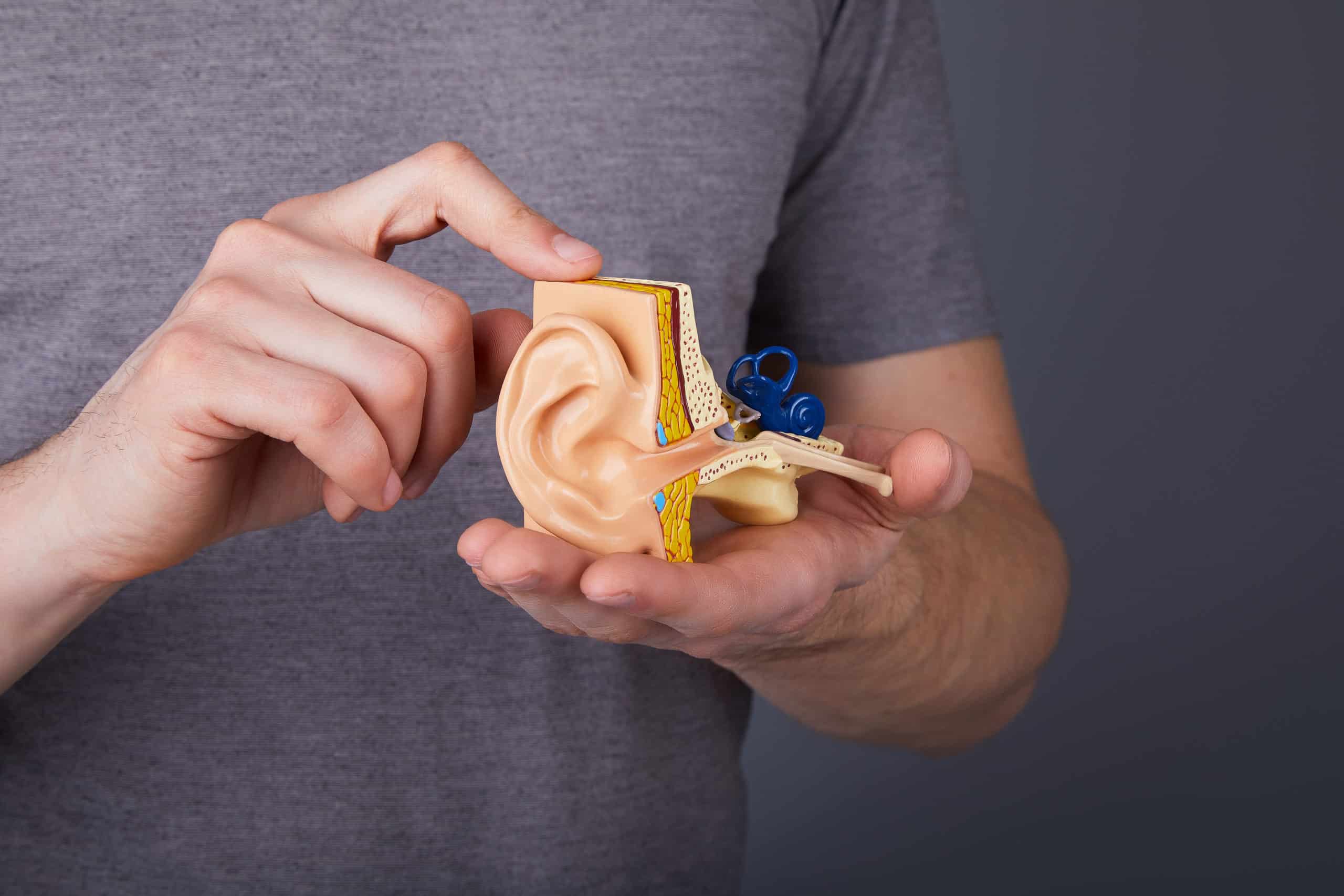Blog
Blog
A Guide on Sensorineural Hearing Loss

Here’s what you should know about sensorineural hearing loss, including the signs and symptoms to look out for, and where to seek treatment.
What is sensorineural hearing loss?
“Sensorineural” refers to any sense perception that’s facilitated by nerve cells. In the case of hearing, this refers to the hair cells in the inner ear that allow you to detect and decipher different sounds. Any damage to these hair cells can interfere with their ability to transmit sound to your brain, thereby resulting in hearing loss. This type of hearing loss can vary in severity and affect one or both ears.
What causes sensorineural hearing loss?
Age is the most common cause of hearing loss. As people get older, the tiny hair cells that help transmit sound to the brain begin to die off. This loss can cause your hearing to gradually weaken over time. In addition to age, there are several other things that could result in a sensorineural hearing impairment, including:
· Damage to the inner ear
· Diseases such as mumps, meningitis, multiple sclerosis or Meniere’s disease
· Ear infections
· Genetic hearing disorders
· Medications
· Noise
· Trauma to the head or outer ear
What are the symptoms of a sensorineural hearing impairment?
While hearing loss associated with age or prolonged exposure to noise may be difficult to notice, there are several tell-tale signs that your hearing may be impaired:
· An inability to hear subtle noises, like the humming of the refrigerator
· Difficulty conducting phone conversations
· Feeling like following a conversation requires intense concentration
· Asking others to repeat themselves more and more often
· Hearing humming, ringing or buzzing sounds
· Trouble understanding what others are saying, especially with background noise
· Maximizing the volume settings on all your electronic devices
In addition, you may notice a feeling of exhaustion after communicating with others.
Can sensorineural hearing loss get worse?
Unfortunately, sensorineural hearing loss can get worse over time, particularly types related to aging. However, hearing aids can dramatically improve your hearing and your quality of life.
Is sensorineural hearing loss permanent?
Once they die, hair cells in the inner ear can’t be repaired or replaced. For this reason, sensorineural hearing loss can’t be cured.
Hearing clinics in Alberta
The kind and caring audiologists at Soundwave Hearing Care will work with you to find the perfect hearing solution for your needs. Contact us today to schedule an appointment at our Calgary, Lethbridge, Grande Prairie or High River clinic.
All the blogs are reviewed and edited by our clinic's lead audiologist, Dr. Anne Wooliams. Dr. Woolliams is an experienced audiologist specialized in pediatric audiology, auditory processing, and tinnitus/sound sensitivity therapy. She is dedicated to providing top-notch hearing care and helping her clients improve their language and communication abilities. Dr. Woolliams' expertise in literature and linguistics, combined with her passion for helping people improve their language and communication, make her an incredibly valuable asset in the field of audiology. Learn more about Dr. Woolliams.
